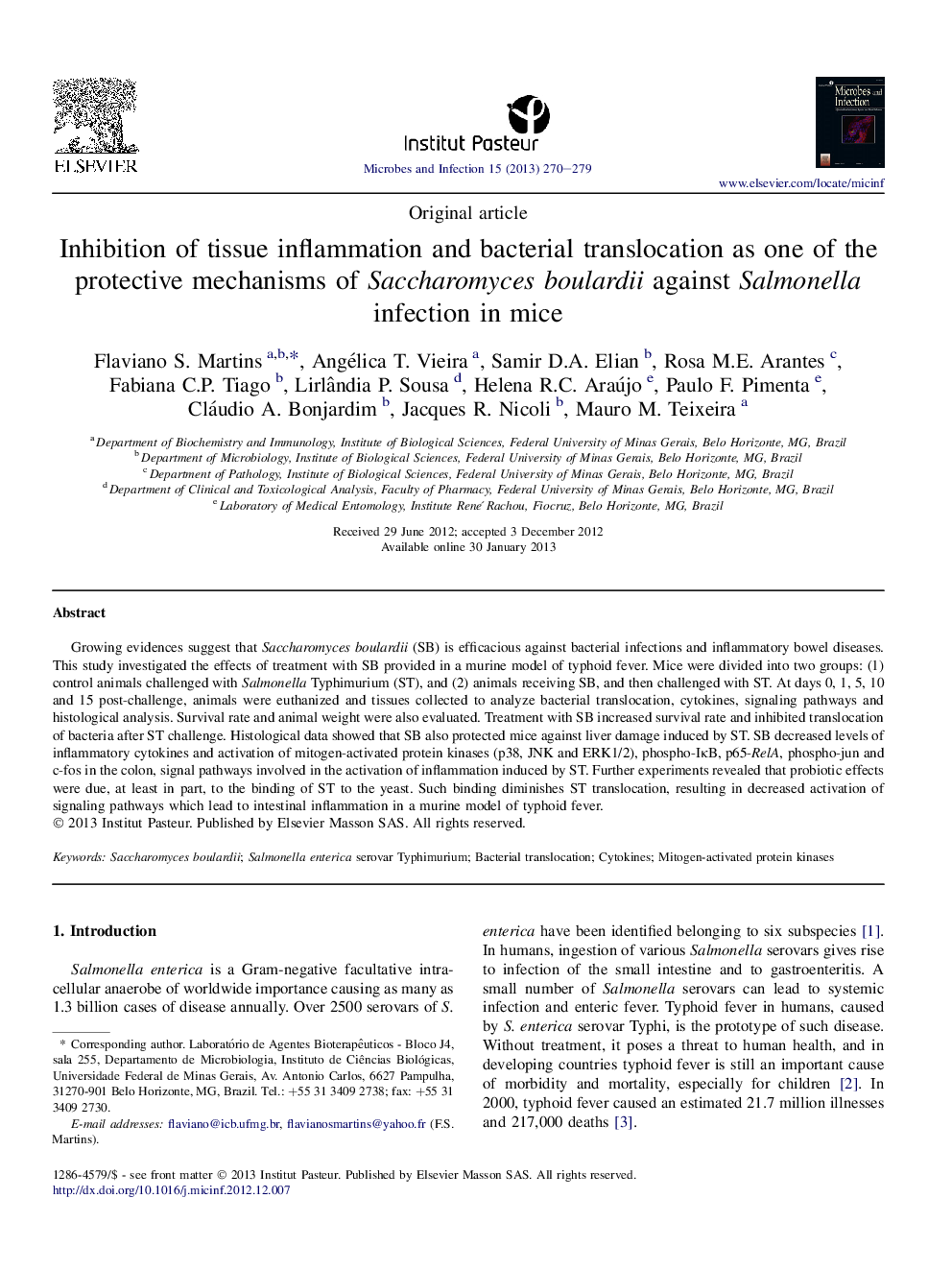| Article ID | Journal | Published Year | Pages | File Type |
|---|---|---|---|---|
| 6135915 | Microbes and Infection | 2013 | 10 Pages |
Abstract
Growing evidences suggest that Saccharomyces boulardii (SB) is efficacious against bacterial infections and inflammatory bowel diseases. This study investigated the effects of treatment with SB provided in a murine model of typhoid fever. Mice were divided into two groups: (1) control animals challenged with Salmonella Typhimurium (ST), and (2) animals receiving SB, and then challenged with ST. At days 0, 1, 5, 10 and 15 post-challenge, animals were euthanized and tissues collected to analyze bacterial translocation, cytokines, signaling pathways and histological analysis. Survival rate and animal weight were also evaluated. Treatment with SB increased survival rate and inhibited translocation of bacteria after ST challenge. Histological data showed that SB also protected mice against liver damage induced by ST. SB decreased levels of inflammatory cytokines and activation of mitogen-activated protein kinases (p38, JNK and ERK1/2), phospho-IκB, p65-RelA, phospho-jun and c-fos in the colon, signal pathways involved in the activation of inflammation induced by ST. Further experiments revealed that probiotic effects were due, at least in part, to the binding of ST to the yeast. Such binding diminishes ST translocation, resulting in decreased activation of signaling pathways which lead to intestinal inflammation in a murine model of typhoid fever.
Keywords
Related Topics
Life Sciences
Immunology and Microbiology
Immunology
Authors
Flaviano S. Martins, Angélica T. Vieira, Samir D.A. Elian, Rosa M.E. Arantes, Fabiana C.P. Tiago, Lirlândia P. Sousa, Helena R.C. Araújo, Paulo F. Pimenta, Cláudio A. Bonjardim, Jacques R. Nicoli, Mauro M. Teixeira,
